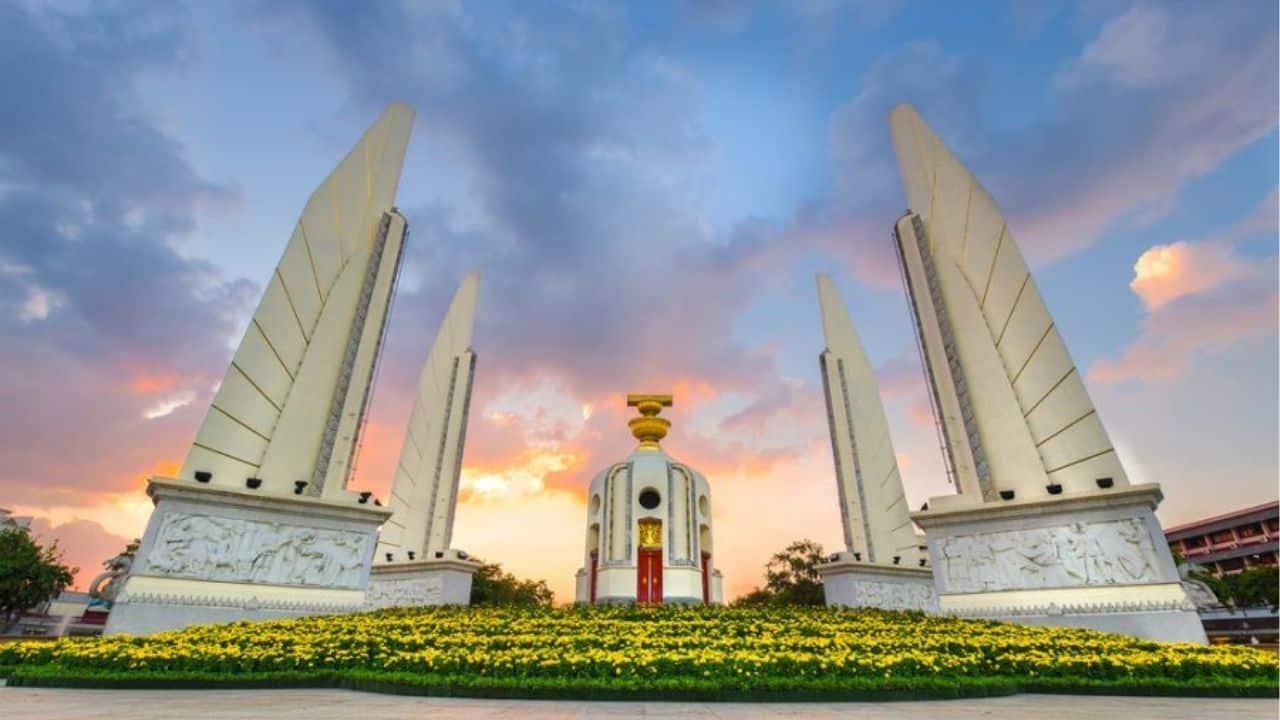Thai charter reform at risk as border tensions take focus
Analysts say border tensions may drown out democratic reform calls

Experts have warned that Thai voters may reject charter reform when they head to the polls, as rising nationalist sentiment shifts focus to border disputes.
Yesterday, November 6, academics and political observers sounded the alarm that the junta-era charter is likely to survive another public vote, as attention shifts from constitutional reform to the more emotionally charged issue of revoking controversial border agreements.
The government has scheduled the next general election, expected by early April, to include two key referendums: one on whether to rewrite the 2017 Constitution, and another on whether to scrap two memorandums of understanding (MoUs) signed with Cambodia in 2000 and 2001.
These MoUs concern land and maritime boundary demarcations and cooperation on energy development in overlapping claims in the Gulf of Thailand.

Purawich Watanasukh, a political scientist from Thammasat University, said:
“Just say the word Cambodia, and people will likely vote against [the MoUs]. And what about the constitutional amendment? Who cares? That’s a technical issue.”
Yuttaporn Issarachai, of Sukhothai Thammathirat Open University, described the situation as a referendum “upon emptiness,” where fervent nationalism risks sidelining rational debate.

Following a violent border clash on May 28, patriotic fervour has surged, fuelling mass frustration with Phnom Penh. A recent NIDA poll shows most Thais have “lost patience” over the dispute.
Meanwhile, two bills outlining the structure of a constitution-drafting assembly are under parliamentary review, but experts remain sceptical of meaningful change.
Observers note that the 2017 charter, drafted under the military regime, has been wielded as a political shield for the conservative bloc, now led by Bhumjaithai and its allies in the royalist United Power of the Land to Protect Sovereignty group.
Critics argue the Constitution entrenches undemocratic mechanisms, such as an unelected Senate and the interventionist role of the Constitutional Court, which has removed multiple prime ministers and blocked reformist candidates, according to The Nation.
Purawich said that conservatives often sell the 2017 charter as “anti-corruption” to gain public support.
“Just a few people want constitutional reform.”
Past efforts to challenge the charter have faced military suppression. The Internet Law Reform Dialogue said that over 200 people were prosecuted for opposing the 2016 referendum.
Yuttaporn said that referendums are being used as “tools of control,” echoing concerns that any upcoming vote may only reinforce the status quo.
Latest Thailand News
Follow The Thaiger on Google News:


























